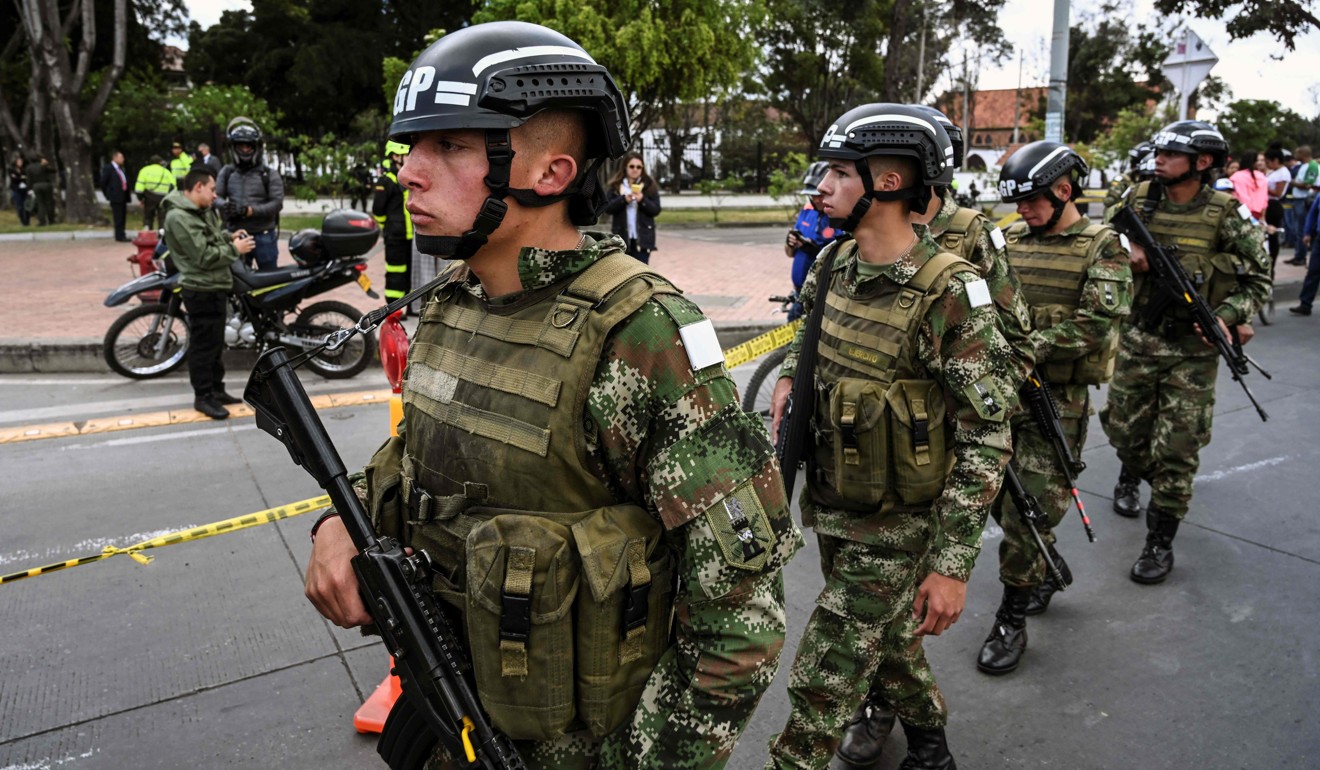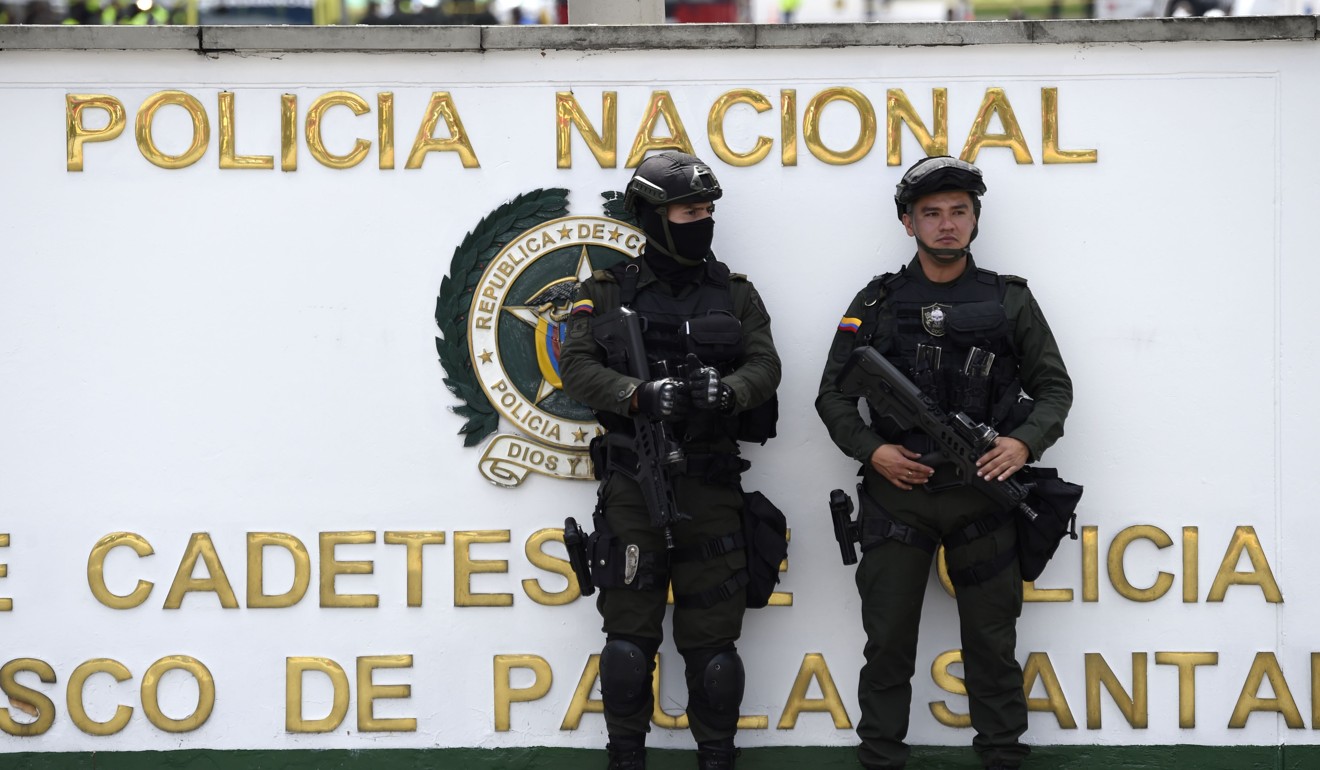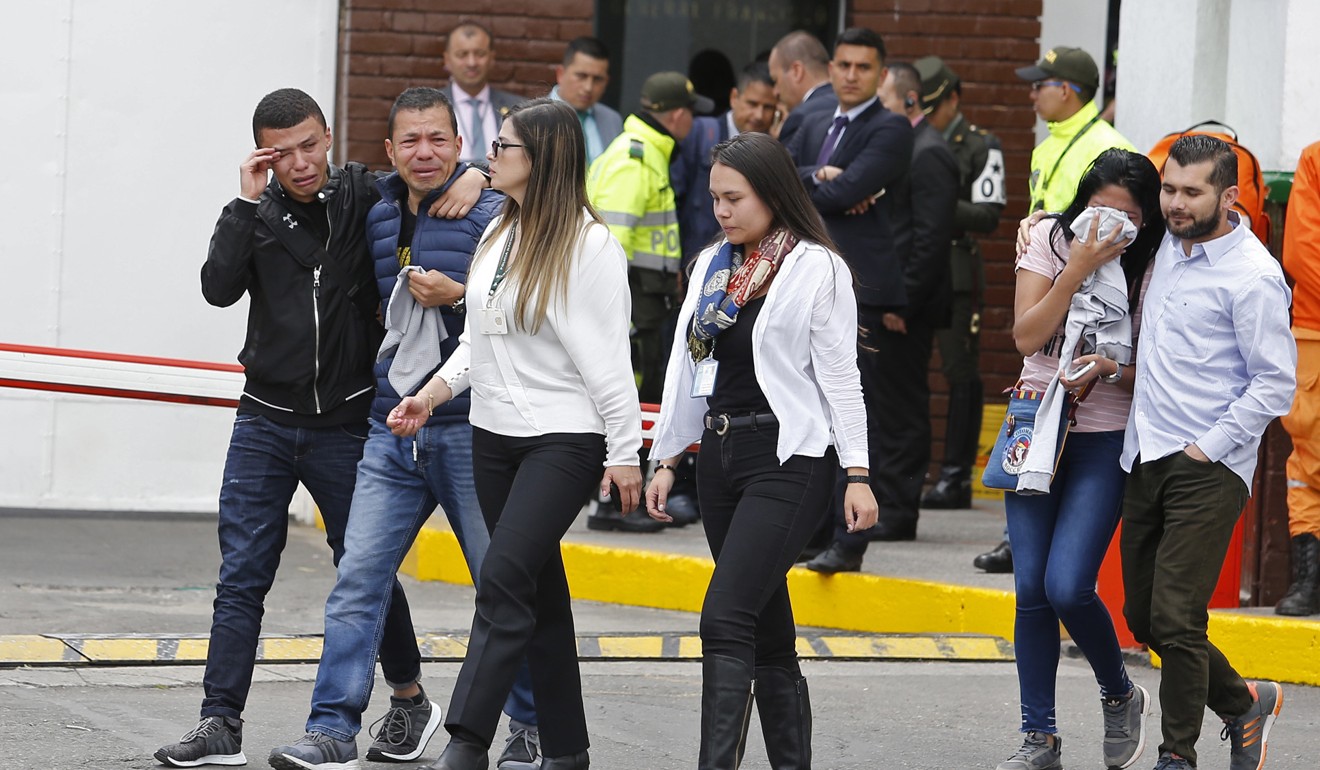
Car bomber kills 21, wounds dozens in attack on recruits at Colombia police academy
- It is the deadliest attack in Bogota since the government struck a 2016 peace deal with the Marxist FARC rebel group
Colombia’ s government declared three days of mourning on Thursday after at least 21 people died in a car bomb at a Bogota police cadet training academy, and 68 were wounded – the worst such incident in the city in 16 years.
The defence ministry said the “terrorist act” was carried out using a vehicle packed with 80kg (about 175 pounds) of explosives.

“Unfortunately, the preliminary toll is 21 people dead, including the person responsible for the incident, and 68 wounded,” Colombian police said in a statement, adding 58 of those injured had been discharged from hospital. The defence ministry previously reported 11 dead and 65 injured.
“All Colombians reject terrorism and we’re united in fighting it,” President Ivan Duque tweeted in the aftermath.
Later in a statement to the nation, he said he had ordered reinforcements to Colombia’s borders and routes in and out of cities.
“I have also requested that priority be given to all the investigations … to identify the masterminds of this terrorist attack and their accomplices,” he said.

The bomber – who authorities confirmed was killed in the attack – struck at the General Francisco de Paula Santander Officer’s School in the south of Bogota during a promotion ceremony for cadets.
No group claimed responsibility, but public prosecutor Nestor Humberto Martinez named suspect Jose Aldemar Rojas Rodriguez as the “material author of this abominable crime”.
Martinez said Rojas Rodriguez entered the school compound at 9:30am driving a grey Nissan truck, but gave no details about the explosion.
He said the truck underwent an inspection in July in the Arauco department on the border with Venezuela – a traditional stronghold of ELN Marxist guerillas.
Fanny Contreras, the Colombian armed forces’ health inspector, told local radio the truck “entered suddenly, almost hitting the police, and then there was the explosion”.
Carol Oviedo said her brother Jonathan, a cadet, told her on the phone he had been injured, before the line was cut.
“In two years since he joined the police, he’s never had to face a situation like this,” she said.
Like other families, she was waiting near the academy hoping to hear some news.

United States assistant secretary of state in charge of Latin America Kimberly Breier condemned the attack and said: “Our condolences and sympathies go to the victims and family members of those killed.”
Rosalba Jimenez, 62, was opening her confectionery shop nearby when the bomb went off.
“When we turned to look at the school the sky was grey with smoke. People were running, sirens … horrible, horrible, it seemed like the end of the world,” she said.
Authorities sealed off the area to the press and increased security service patrols in the south of the city.
Narcos: the hidden drug highways linking Asia and Latin America
Right-wing Duque, who assumed power in August, has peddled a tough line against Marxist rebels and drug traffickers in the largest cocaine producer in the world.
Peace talks with ELN guerillas – who in the past have claimed responsibility for bomb attacks on police – stalled before Duque replaced Juan Manuel Santos as president, and have not restarted.
Duque has made several demands, including the release of all hostages, as conditions to resume the peace process, but the ELN has dismissed them as unacceptable.
After the 2016 peace accord signed by Santos and FARC guerillas, turning the former rebels into a political party, the ELN is considered the last active rebel group in a country that has suffered more than half a century of conflict.

.png?itok=arIb17P0)